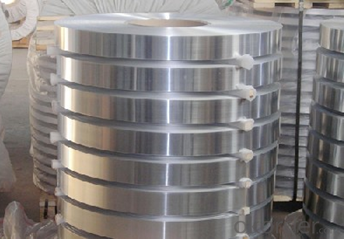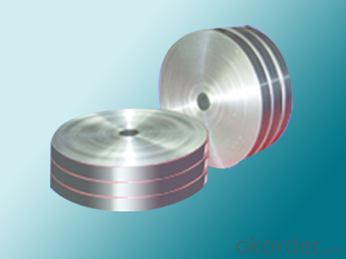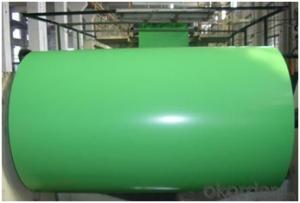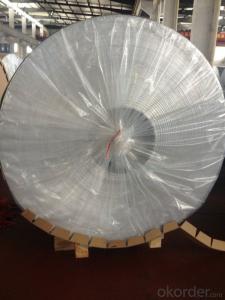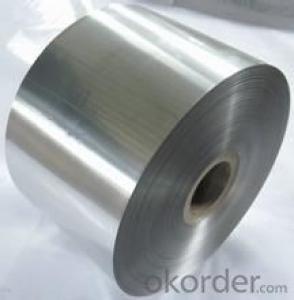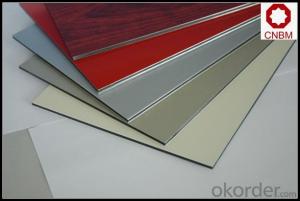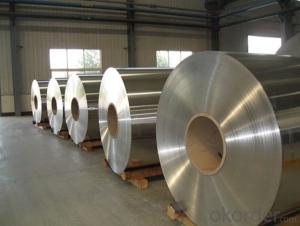Aluminum Coil Price Per Kg - Wholesale from China Group
- Loading Port:
- Qingdao
- Payment Terms:
- TT OR LC
- Min Order Qty:
- 5 m.t.
- Supply Capability:
- 500 m.t./month
OKorder Service Pledge
OKorder Financial Service
You Might Also Like
Specifications
aluminium coil
good quality
competitive price
short delivery time
long mutual beneficial business cooperation
Detailed informations
1.Alloy:AA1050,AA1060, AA1070, AA1100, AA3003, AA3004, AA3005, AA3105, AA5005, AA5052, AA5754, AA5083, AA8011
2.Temper : H12, H14, H16, H18, H22, H24, H26, H32,HO, F
3. Thickness : 0.02mm – 10mm
4. Width : 10mm- 2000mm
5. Standard : ISO9001:2000, SGS , GB/T17748-1999, ASTM, EU standard .
6. Inner diameter : 150mm , 405mm ,500mm 505mm , 508mm
7. Coil weight : 1.5tons – 5.0 tons
8. Surface Quality : be free from Oil Stain, Dent, Inclusion, Scratches, Stain, Oxide Dicoloration, Breaks,
Corrosion, Roll Marks, Dirt Streaks and other defect which will interfere with use
9. Shipment: By bulk vessel or By container
Pictures
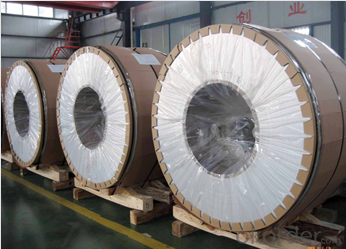
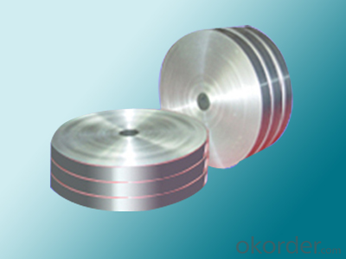
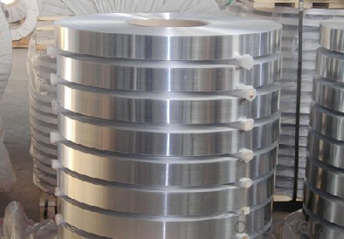
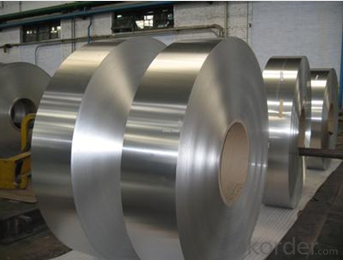
Product Description
Aluminium is remarkable for the metal's low density and for its ability to resist corrosion due to the phenomenon of passivation. Structural components made from aluminium and its alloys are vital to the aerospace industry and are important in other areas of transportation and structural materials. The most useful compounds of aluminium, at least on a weight basis, are the oxides and sulfates.
Despite its prevalence in the environment, no known form of life uses aluminium salts metabolically. In keeping with its pervasiveness, aluminium is well tolerated by plants and animals. Owing to their prevalence, potential beneficial (or otherwise) biological roles of aluminium compounds are of continuing interest.
The earliest citation given in the Oxford English Dictionary for any word used as a name for this element is alumium, which British chemist and inventor Humphry Davy employed in 1808 for the metal he was trying to isolate electrolytically from the mineral alumina. The citation is from the journal Philosophical Transactions of the Royal Society of London: "Had I been so fortunate as to have obtained more certain evidences on this subject, and to have procured the metallic substances I was in search of, I should have proposed for them the names of silicium, alumium, zirconium, and glucium."
FAQ
1. What is the applications?
Outdoor decoration, business chain, exhibition of advertisement decoration and display ,ACP, wall cladding, facades, roofs and canopies, ceilings, signboards, blind window, display platforms, electrical panels etc.
2. What is the popular size?
1000*2000,1200*2400,1219*2438,1220*2440
1000*3000,1250*3000,1500*3000 etc.
3. What is the coating?
Polyester, Fluorocarbon, polyurethane and epoxy coating
4. What is the Surface Quality?
be free from Oil Stain, Dent, Inclusion, Scratches, Stain, Oxide Dicoloration, Breaks,
Corrosion, Roll Marks, Dirt Streaks and other defect which will interfere with use
5. How about the shipment?
Shipment: By bulk vessel or By container
Welcome to inquiry us! Hope we can establish a long-term relations of cooperation.
- Q: What is the typical price gap between purchasing new aluminum coils versus used ones?
- <p>The price difference between new and used aluminum coils can vary significantly based on factors such as the quality of the used coils, market demand, and the specific grade of aluminum. On average, used aluminum coils can be 20-50% cheaper than new ones. However, this is a broad estimate and actual prices can fluctuate. It's essential to check current market prices and consider the condition of the used coils before making a purchase decision.</p>
- Q: I own a pistol with an aluminum frame. If I were to store it away for a long time, would I need to bother wiping oil over the aluminum surfaces in addition to the steel surfaces? If it helps, there is a dark grey sort of finish on the aluminum.
- I'm no expert on storing firearms but I wouldn't think it matters. I through aluminum frame Walther clone in my tool box for years once and never had an issue. But I wasn't really worried about it either. Anyhow, I would probably lube the internals since they use steel parts. Then maybe someone else can chime in with more info.
- Q: Can aluminum coils be used in the manufacturing of lighting fixtures?
- Yes, aluminum coils can be used in the manufacturing of lighting fixtures. Aluminum is a versatile and lightweight material that has excellent thermal conductivity properties, making it suitable for dissipating heat generated by the light source. Additionally, aluminum coils are easily moldable, allowing for the creation of intricate designs and shapes in lighting fixtures. The corrosion-resistant nature of aluminum also ensures the longevity and durability of the lighting fixture. Overall, aluminum coils are a popular choice in the manufacturing of lighting fixtures due to their numerous advantages.
- Q: Are aluminum coils resistant to chemicals?
- Yes, aluminum coils are generally resistant to chemicals. Aluminum has a natural oxide layer that forms on its surface, which provides a protective barrier against many chemicals. This oxide layer helps to prevent corrosion and degradation of the aluminum coils when exposed to different substances. However, it is important to note that some chemicals can still have an adverse effect on aluminum, particularly strong acids or alkalis. In such cases, additional protective coatings or treatments may be necessary to enhance the chemical resistance of the aluminum coils.
- Q: Are aluminum coils recyclable?
- Yes, aluminum coils are recyclable. Aluminum is one of the most recyclable materials, and it can be recycled indefinitely without losing its quality. The recycling process of aluminum coils involves melting them down to form new coils or other aluminum products. This not only reduces the amount of waste in landfills but also saves energy and resources required to produce new aluminum from raw materials. Recycling aluminum coils is an environmentally friendly choice that helps conserve natural resources and reduce greenhouse gas emissions.
- Q: Explain how the temperature affects aluminum coil properties and behavior.
- <p>The relationship between aluminum coil and temperature is significant as temperature influences the coil's physical properties and performance. At lower temperatures, aluminum coils become more brittle and susceptible to cracking or breaking. As the temperature increases, aluminum's ductility improves, allowing it to be more easily shaped and formed. However, excessive heat can also lead to deformation and loss of strength. The thermal conductivity of aluminum is high, meaning it conducts heat well, which is useful in applications requiring heat transfer. Additionally, the electrical conductivity of aluminum is affected by temperature; as temperature rises, resistance increases, which can impact applications where electrical conductivity is critical.</p>
- Q: I'm asking about the aluminum tabs on soda cans. I've heard mixed things.
- Leave the tabs on the can when you bring the can to be recycled. You don't get any extra for them because they just aren't very valuable. You might want to tell the hospital that offering extra for the tabs isn't going help them and is just a waste of money.
- Q: This question asks for criteria or methods to determine if a used aluminum coil is safe for reuse.
- <p>To determine if a used aluminum coil is safe to use, consider the following: Check for any visible signs of damage such as cracks, dents, or corrosion. Ensure the coil has been properly cleaned and sanitized to remove any residues or contaminants. Verify that the coil has not exceeded its recommended lifespan or usage limits. Consult the manufacturer's guidelines for any specific safety checks or maintenance requirements. If in doubt, it's best to consult with a professional or replace the coil to avoid potential safety hazards.</p>
- Q: What rules or laws govern the transportation of old or damaged aluminum coils?
- <p>Yes, there are regulations on the transportation of old or damaged aluminum coils. These regulations often fall under hazardous materials or waste transportation laws, depending on the condition of the coils. In the United States, the Department of Transportation (DOT) regulates the transportation of hazardous materials, which may include damaged aluminum coils if they pose a risk. The Environmental Protection Agency (EPA) also has guidelines for the transportation of waste materials. Internationally, the International Maritime Dangerous Goods (IMDG) Code and International Air Transport Association (IATA) Dangerous Goods Regulations provide guidance for the safe transport of such materials. Compliance with packaging, labeling, documentation, and handling requirements is crucial to ensure safety and avoid penalties.</p>
- Q: How do aluminum coils perform in extreme temperatures?
- Aluminum coils are known for their excellent performance in extreme temperatures. They have a high melting point of 660 degrees Celsius (1220 degrees Fahrenheit), making them highly resistant to heat. Additionally, aluminum has a low coefficient of thermal expansion, which means it can withstand rapid changes in temperature without warping or cracking. This makes aluminum coils a reliable choice for applications in both high and low-temperature environments.
Send your message to us
Aluminum Coil Price Per Kg - Wholesale from China Group
- Loading Port:
- Qingdao
- Payment Terms:
- TT OR LC
- Min Order Qty:
- 5 m.t.
- Supply Capability:
- 500 m.t./month
OKorder Service Pledge
OKorder Financial Service
Similar products
Hot products
Hot Searches
Related keywords


